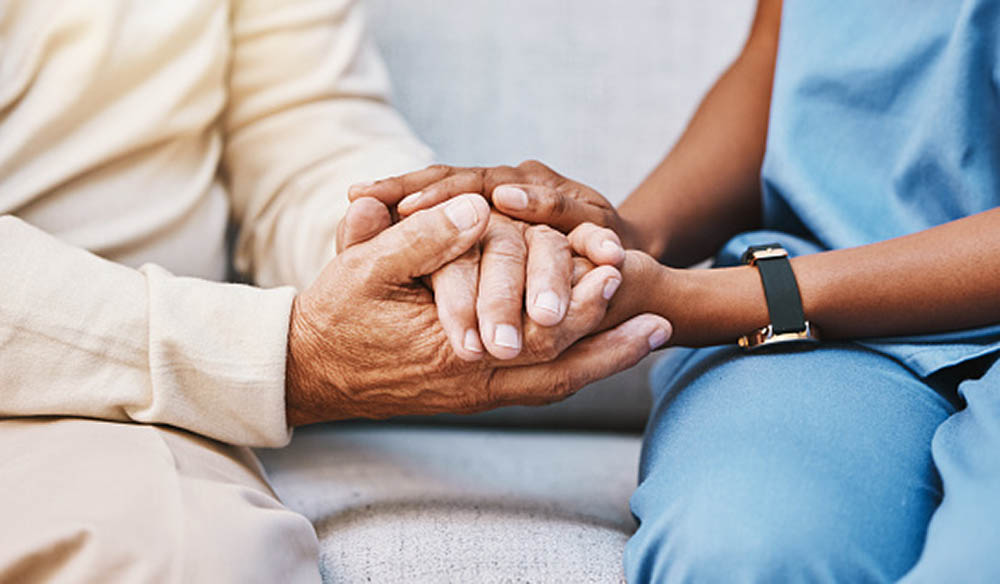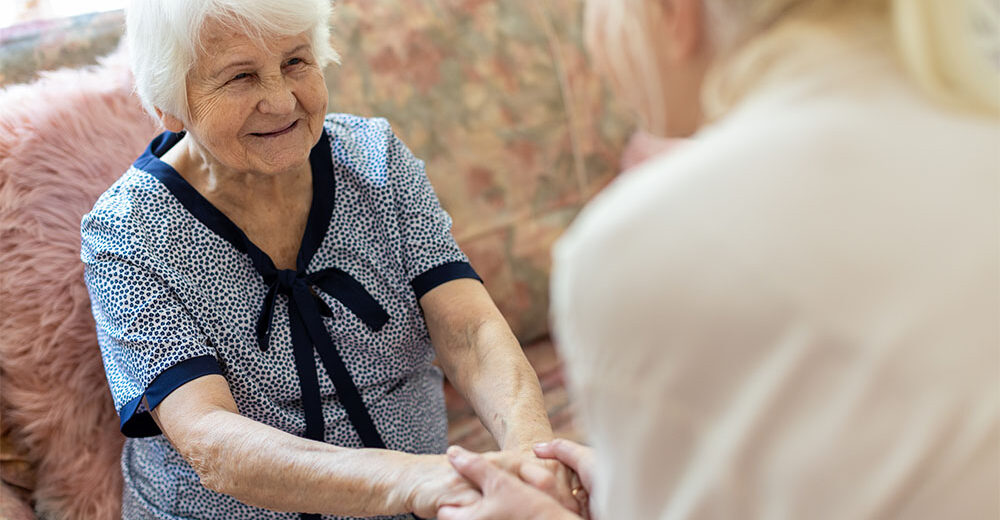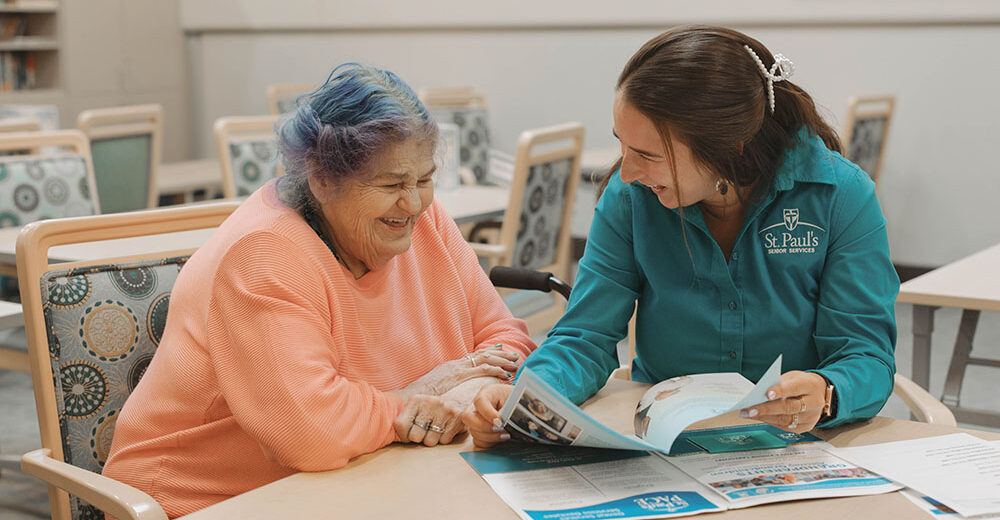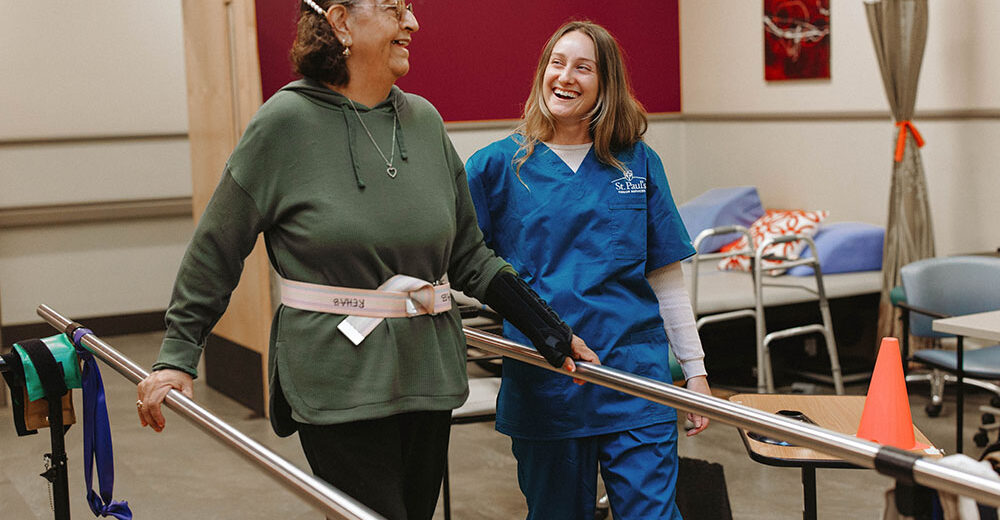From Helplessness to Hopefulness: A Shift in Perspective on Senior Care

I have always considered myself to be a helper. Throughout school, I was always the first to raise my hand to volunteer for a project. I pursued higher education so that I could one day use my skills to “change the world,” and chased a career in working with some of society’s most marginalized individuals. I believed that the right tools would enable me to make a real impact in my community.
My start in nonprofit work and helping seniors began when I was just 15 years old. Volunteering with an organization that provided free Durable Medical Equipment (DME) and transportation to doctor’s appointments and social activities for seniors gave me a glimpse into the positive, healthy aging experience one could have. The staff there took me under their wing and encouraged my enthusiastic helper spirit. Years later, after moving across the country and completing my education, I found myself accepted for a role as a case manager for seniors at a local nonprofit.
When I was a case worker for seniors, primarily those who were low-income and experiencing homelessness, I was met with a disheartening challenge. Given that one in four unhoused adults in San Diego are over the age of 55 (according to San Diego Point-in-Time Count), I was overwhelmed by a high volume of seniors with no residence, no healthcare, and no hope. Slowly, I withdrew from the wide-eyed, enthusiastic helper to making desperate phone calls to housing agencies and plastering on a neutral face when my clients would ask me how long they would be stuck without their basic needs.

I found myself devoid of any sense of work-life balance. I carried more than my lunch bag home with me every day; I spent countless nights wondering what I could do for my seniors when the resources were so scarce. No matter how much I did for them, it never felt like enough. The hard days of never-ending waiting lists, declining health, or loss of motivation far outnumbered the rewarding ones, until I stopped being able to truly enjoy the triumphs.
I’ll never forget sitting down with a senior in her apartment, who I was helping sign up for rental assistance. I asked her about her food needs and she expressed, “oh, my PACE program helps me with that. I get snacks and a meal at the day center!” When I followed up on her transportation costs, she replied “PACE provides that too!” At the time I was largely unfamiliar with St. Paul’s PACE and was encouraged by her optimism. I researched more about the organization and felt myself drawn to their mission.

A number of factors led to my decision to leave my role as a case worker and explore a career at St. Paul’s PACE. Part of me felt defeated and burnt out from the bleak future I had grown to associate with lower income seniors. I needed a break from housing services and hoped to gain valuable knowledge about other ways to support senior health. I was drawn to St. Paul’s mission to provide comprehensive care to the aging population and found an excellent fit in their Health Plan department, where every day I get to help seniors keep their free insurance benefits that allow them to access life-saving and life-affirming services.

I soon realized that St. Paul’s PACE was the perfect place for me after getting to know my colleagues and our shared motivation for providing excellent care and service to our participants. We practice idea-sharing and are always open to providing feedback to better our processes. It gives me a great sense of belonging to be part of a team that above all, cares about our seniors having access to a higher quality of life.
In my previous role, I often saw seniors living alone in an apartment that fit their tight budget, unable to move to a higher level of care due to the cost of home health or assisted living. They faced challenges getting adequate help at home and often lacked transportation to get to necessary medical appointments. It was enlightening to see how at St. Paul’s PACE, participants can receive assistance with care at home, empowering them to stay in a familiar and affordable environment while managing their health. For those without transportation, St. Paul’s provides round-trip rides for all medical appointments, allowing them to keep up with their healthcare. Participants often share with me that they don’t know what they would do without St. Paul’s PACE, and that they feel so cared for by our staff.

I feel lucky to witness seniors living fulfilling, healthier lives every day I come to work. When I visit the day center to meet with a participant, I am so often greeted by smiling faces enjoying the hour’s activity. It doesn’t stop at the game Bingo; I see mini dance parties of seniors swaying to volunteer instrumentalists’ performances, tables overflowing with colorful art supplies, and some finding companionship chatting with their table-mate. It fills me with so much warmth to know that not only are these seniors receiving high quality healthcare and support with some of life’s greatest challenges, but they have the ability to embrace their playfulness and sociability and engage in the moments that bring us true fulfillment.
St. Paul’s PACE has taught me that it truly takes a village to support one another. For a case worker or health worker to take on a senior’s situation by themselves, they are missing out on valuable perspectives, resources, and care that could be provided. When I was working alone attempting to provide guidance to countless seniors, I often encountered questions I couldn’t answer with not much of an idea on where to start. At St. Paul’s PACE, I am surrounded by knowledgeable staff and a wealth of resources to pull from to assist our participants. The interdisciplinary approach to care ensures that seniors have multiple advocates to support them.
There is still a long way to go to secure a healthier future for our aging population, but organizations like St. Paul’s PACE push to better the lives of seniors and, as their mission states, are “leading the transformation of the aging experience.” Working with St. Paul’s has allowed me to reconnect with my hope that it is possible to be a “helper” and make a difference in the lives of our seniors; it just takes a group of dedicated “helpers” to work together to advance senior care.
Are you interested in working for St. Paul’s PACE? Explore our careers page and discover why our staff truly love working for St. Paul’s.
St. Paul’s Program of All-Inclusive Care for the Elderly (PACE) is a managed healthcare plan exclusively for low income seniors ages 55+ who have chronic conditions that make it difficult to live independently at home. If you or someone you know is interested in learning more about our program, call 1-833-PACENOW to speak with an Enrollment Specialist today.
About the Author:
Lauren Jacobs is an Eligibility Specialist at St. Paul’s PACE. In her free time, she spends time writing, playing with her cat, and sharing good food with her loved ones. She hopes that her passion for seniors continues to reflect in her work and advocacy.
Last updated on February 3

